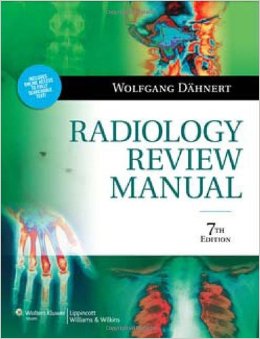Here is the Medical Media Review’s as-of-year-2015 list of the best medical books of all time:
- Dr. Gerald de Lacey, The Chest X-Ray: A Survival Guide by (2008, reviewed here).
- Igbaseimokumo, Usiakimi, MD, Brain CT Scans in Clinical Practice (2009, reviewed here)
- Herring, William, MD, Learning Radiology, Recognizing the Basics, 3e (2015, previous edit reviewed here)
- Kurtz, Ira, MD, Acid Base Case Studies (2004, reviewed here)
- Desai, Samir P., MD, Clinician’s Guide to Laboratory Medicine: Pocket (2009, reviewed here)
- Peters, Wallace, MD, Atlas of Tropical Medicine and Parasitology (2007, reviewed here)
- Schlossberg, David, MD, Differential Diagnosis of Infectious Diseases (1996, reviewed here)
- Klatt, Edward C., MD, Robbins and Cotran Atlas of Pathology, 3e (2014, previous edition reviewed here)
- Howick, Jeremy H., Dr., The Philosophy of Evidence-based Medicine (2011, reviewed here)
- Hauser, Alan R., MD, PhD., Antibiotic Basics for Clinicians: The ABCs of Choosing the Right Antibacterial Agent, 2e (2012, reviewed here)
- Orient, Jane M., MD, Sapira’s Art and Science of Bedside Diagnosis (2009)
- Hoppenfeld, Stanley, MD, Physical Examination of the Spine and Extremities (1976, reviewed here)
- Buttaravoli, Philip, MD, Minor Emergencies, 3e (2012, previous edition reviewed here)
- Blackbourne, Lorne H., MD, Surgical Recall, 6e (2012, reviewed here)
- Jarrell, Bruce, MD, NMS Surgery Casebook (2003, reviewed here)
- Silen, William, MD, Cope’s Early Diagnosis of the Acute Abdomen (2010, reviewed here)
- Ovalle, William K., PhD., Netter’s Essential Histology (2007)
- Gallagher, Christopher, MD, Board Stiff TEE: Transesophageal Echocardiography, 2e (2013)
- Bain, Barbara Jane, Prof. Haematology, A Core Curriculum (2010, reviewed here)
- Murray, Lindsay, Toxicology Handbook, 3e (2015, previous edition reviewed here)
- Fischer, Randall, G., Moffet’s Pediatric Infectious Diseases: A Problem-Oriented Approach (2005)
- Burning, Kevin G., Browse’s Introduction to the Symptoms & Signs of Surgical Disease, 5e (2015)
- Feier, Chris, MD, The Chief Complaint, Emergency Medical Handbook (2014)
- Harper, Richard A., MD, Basic Ophthalmology, 9e (2010)
- Dähnert, Wolfgang, MD, Radiology Review Manual, 7e (2011)

Radiology Review Manual, 7e (2011)


Leave a Reply